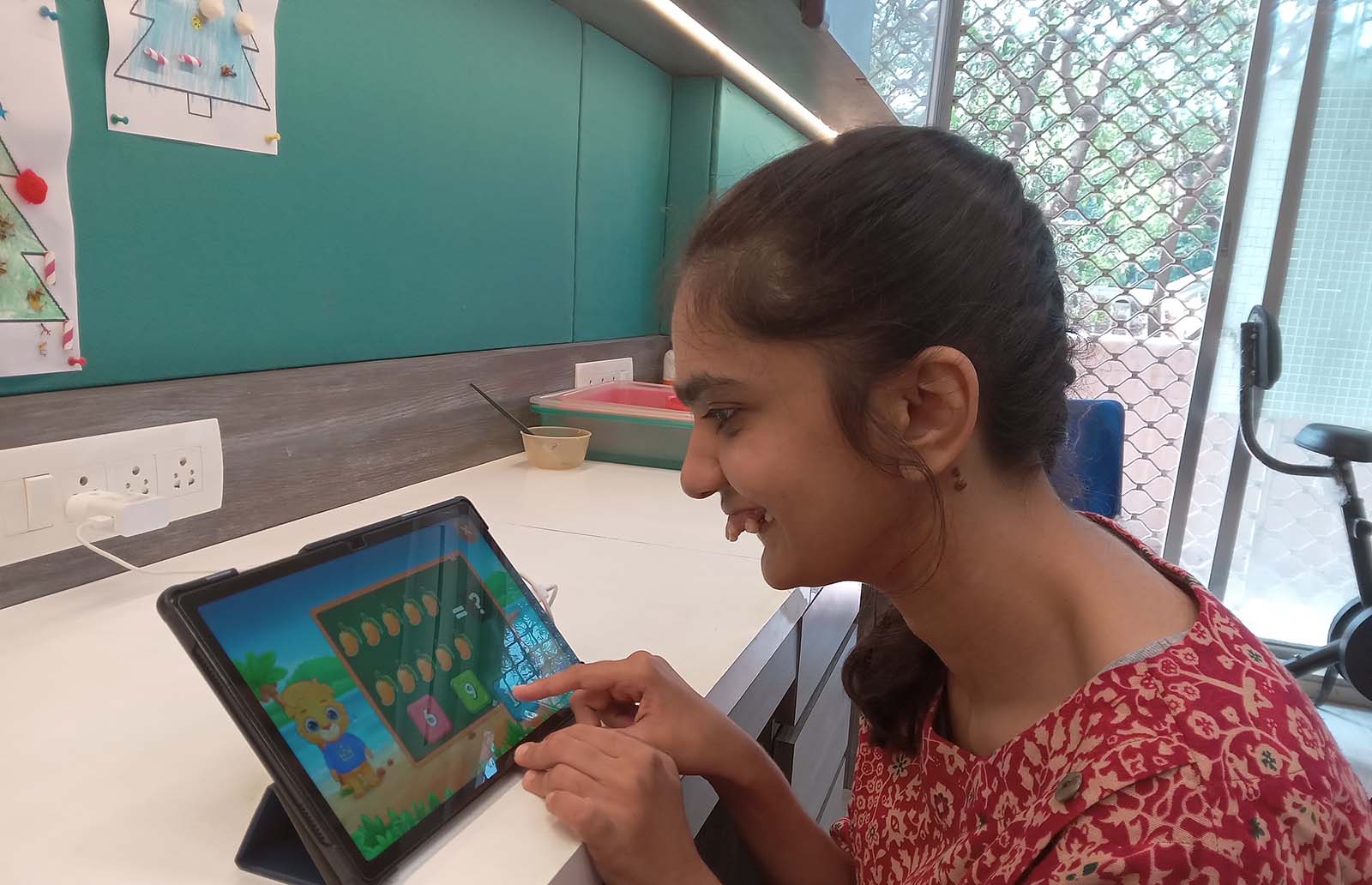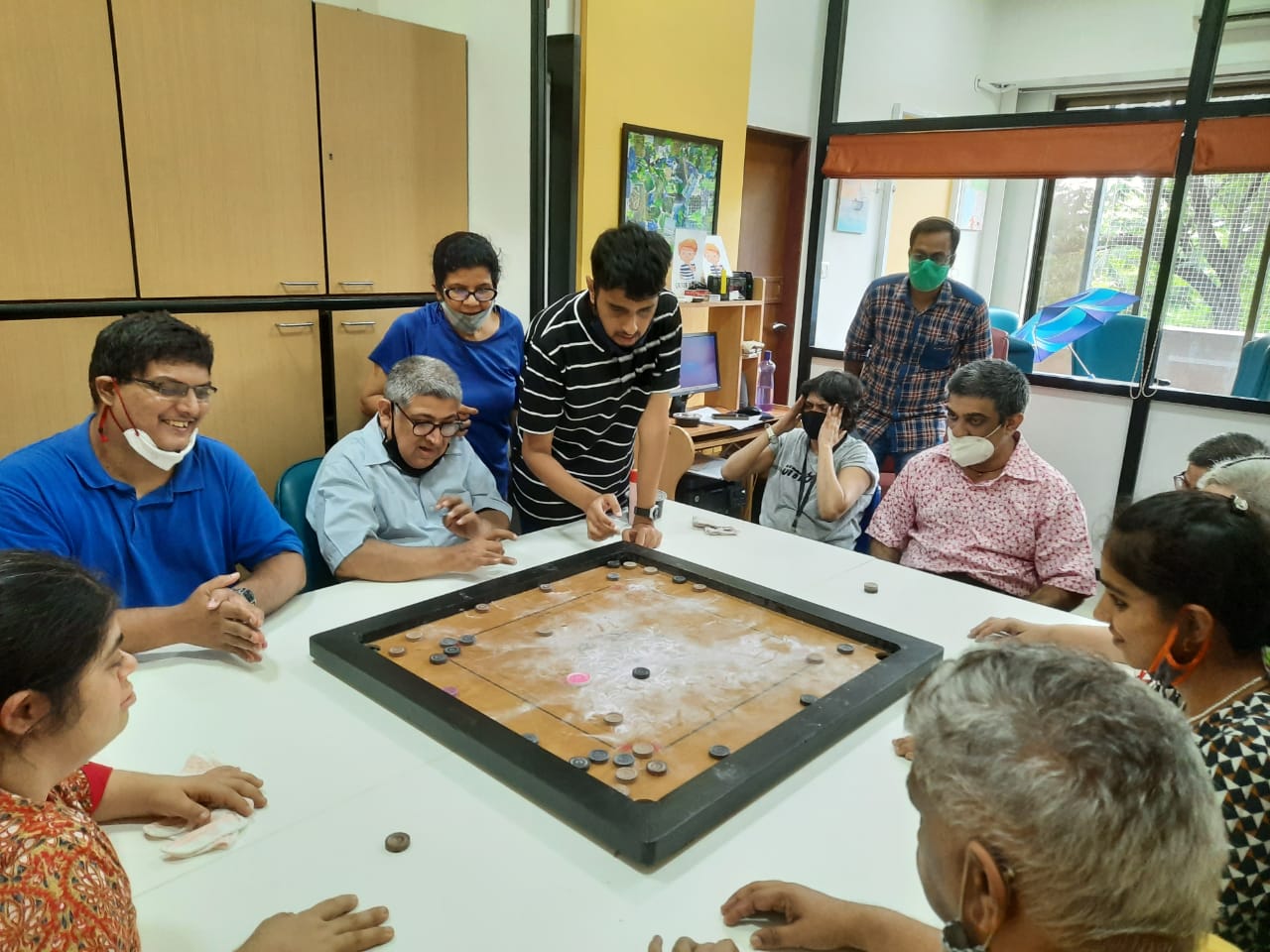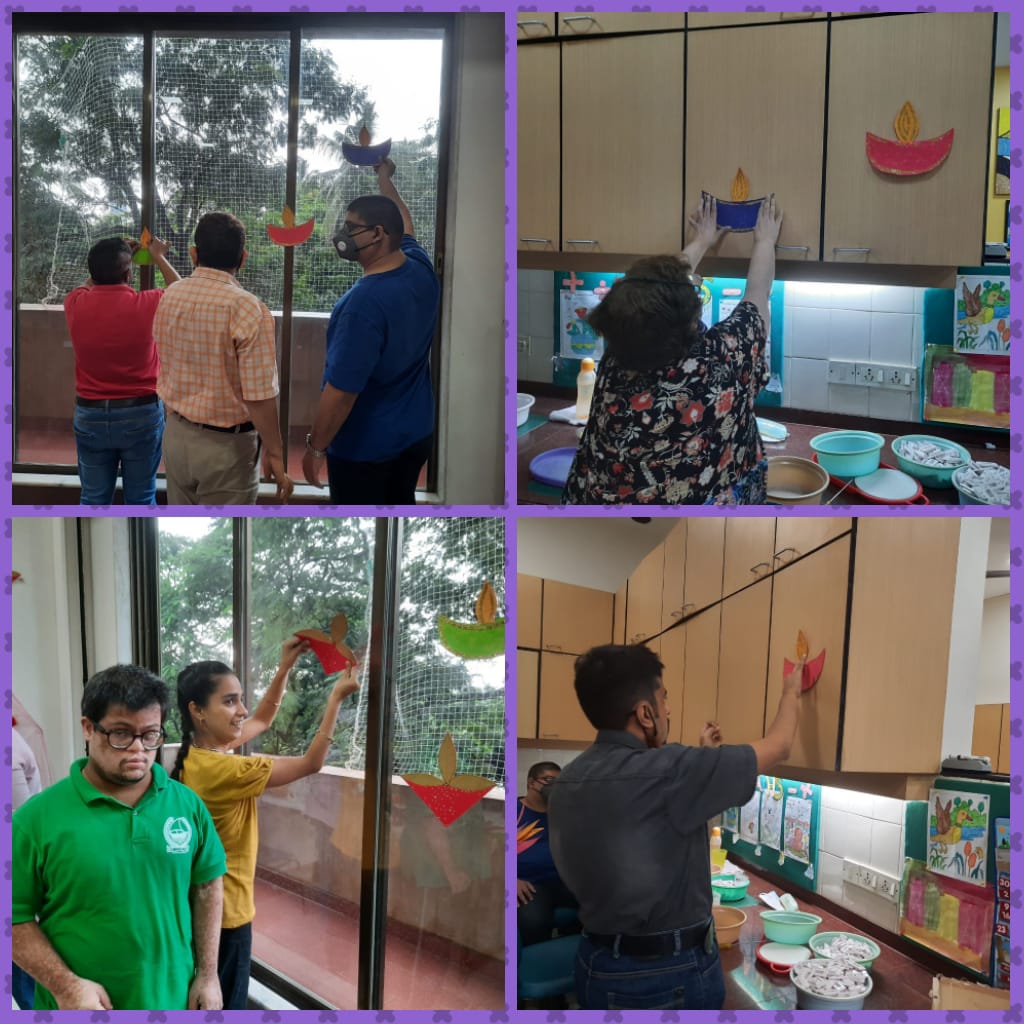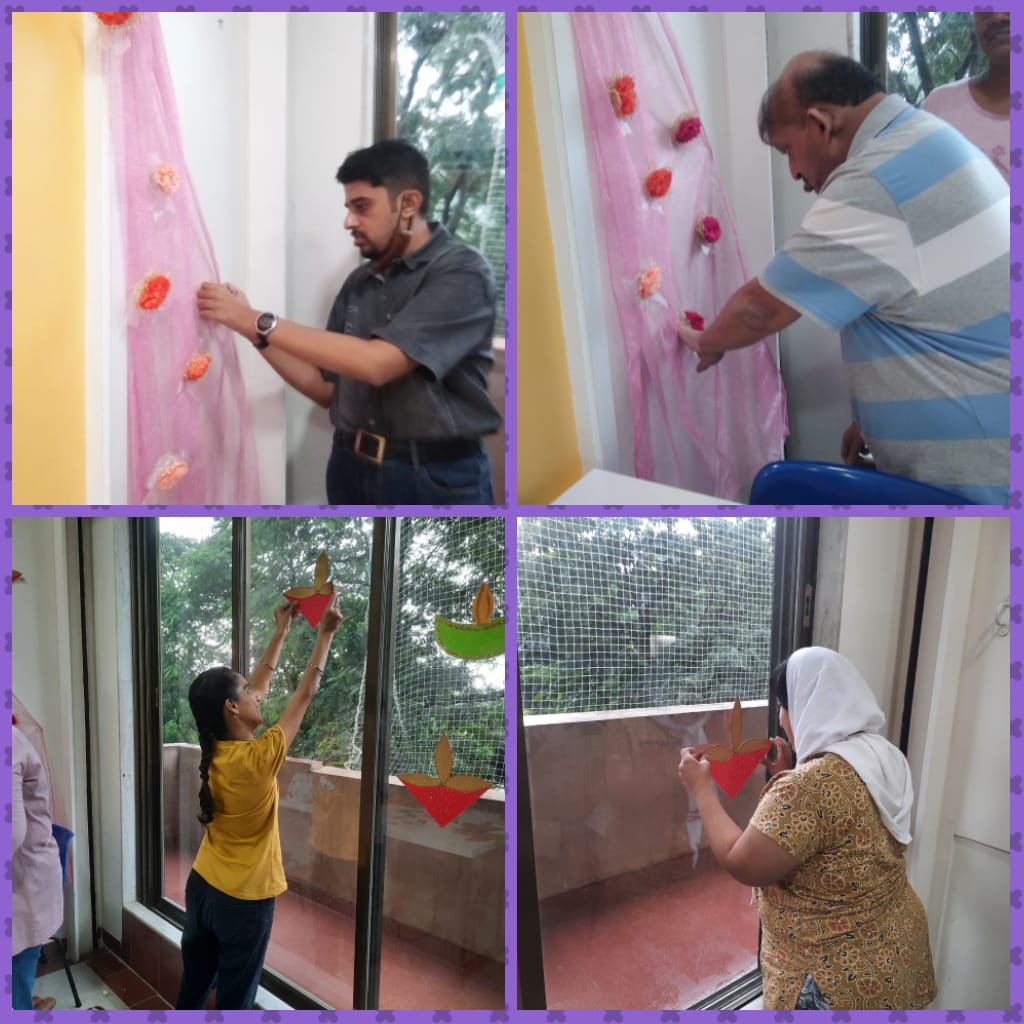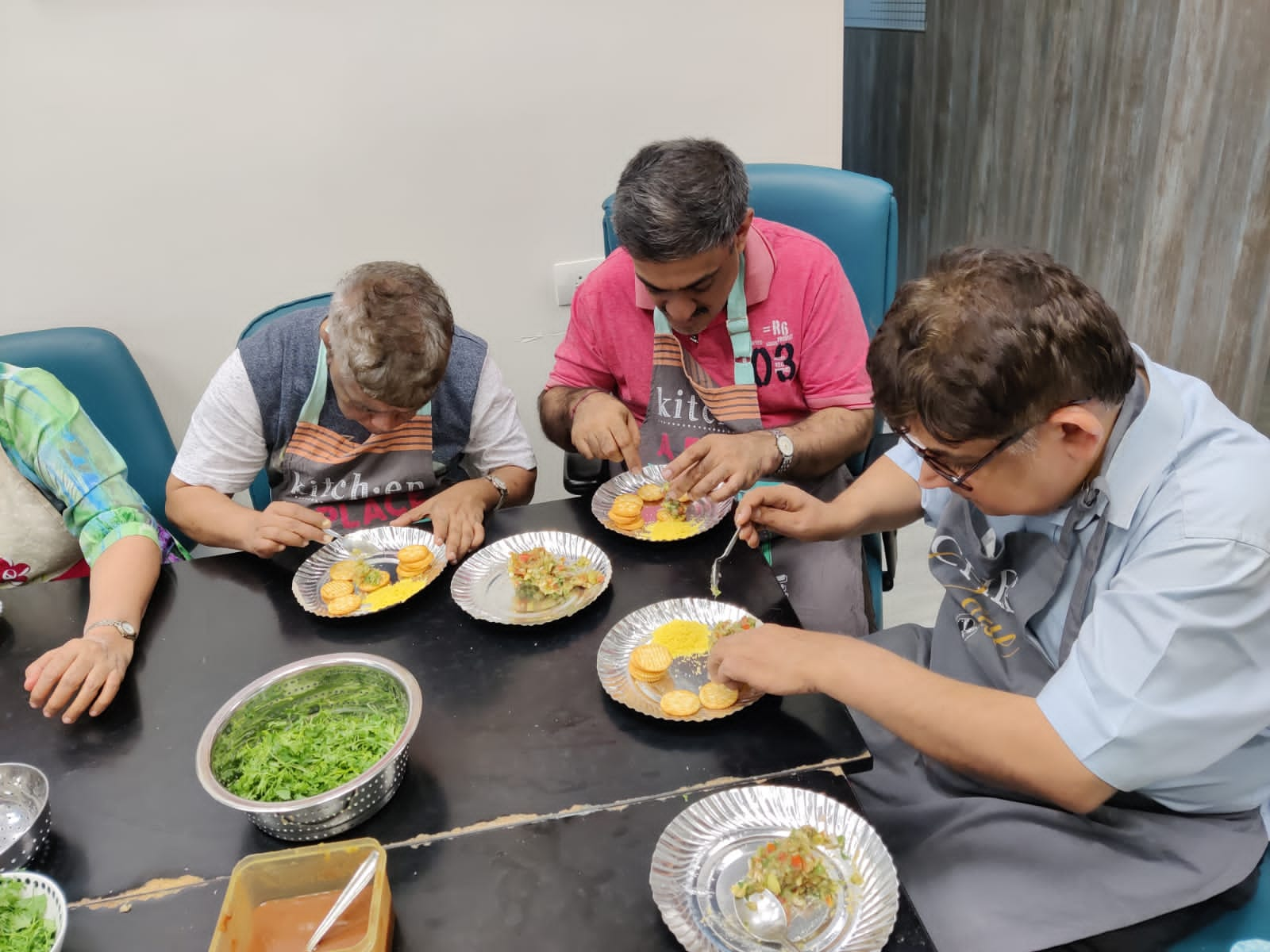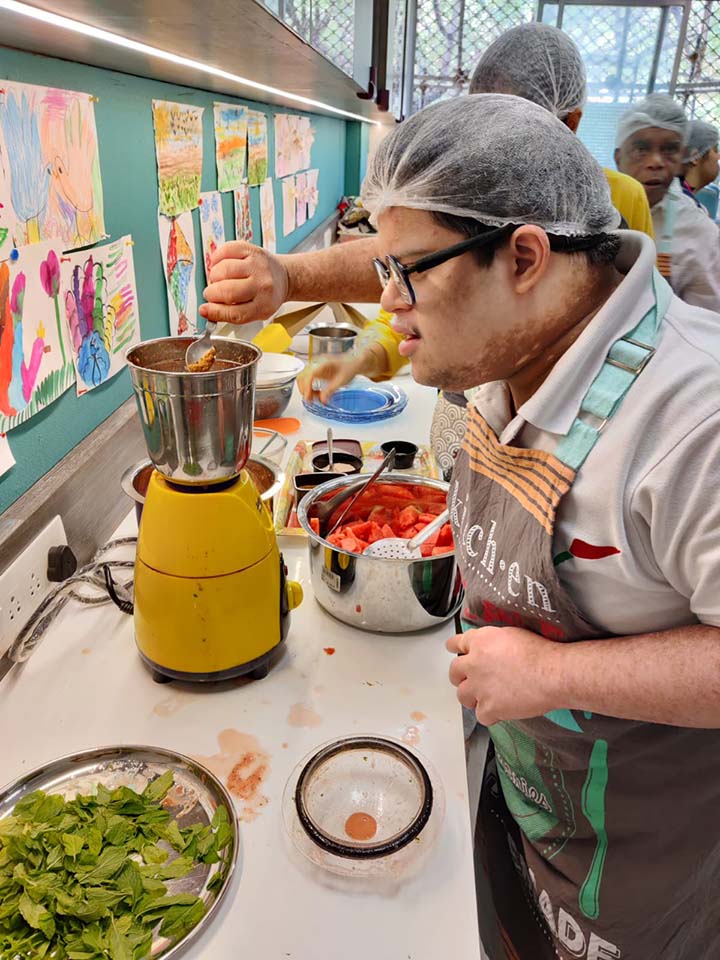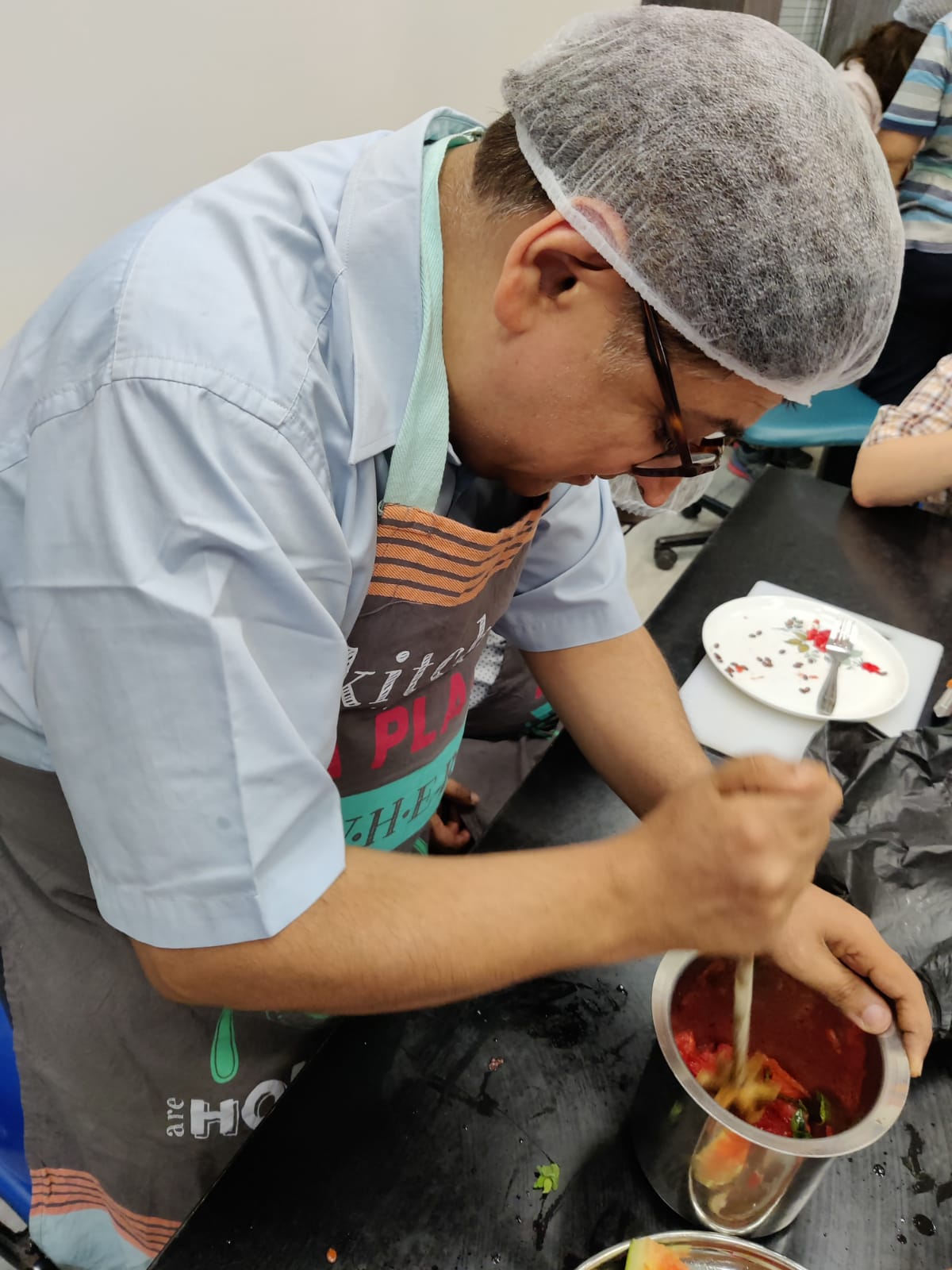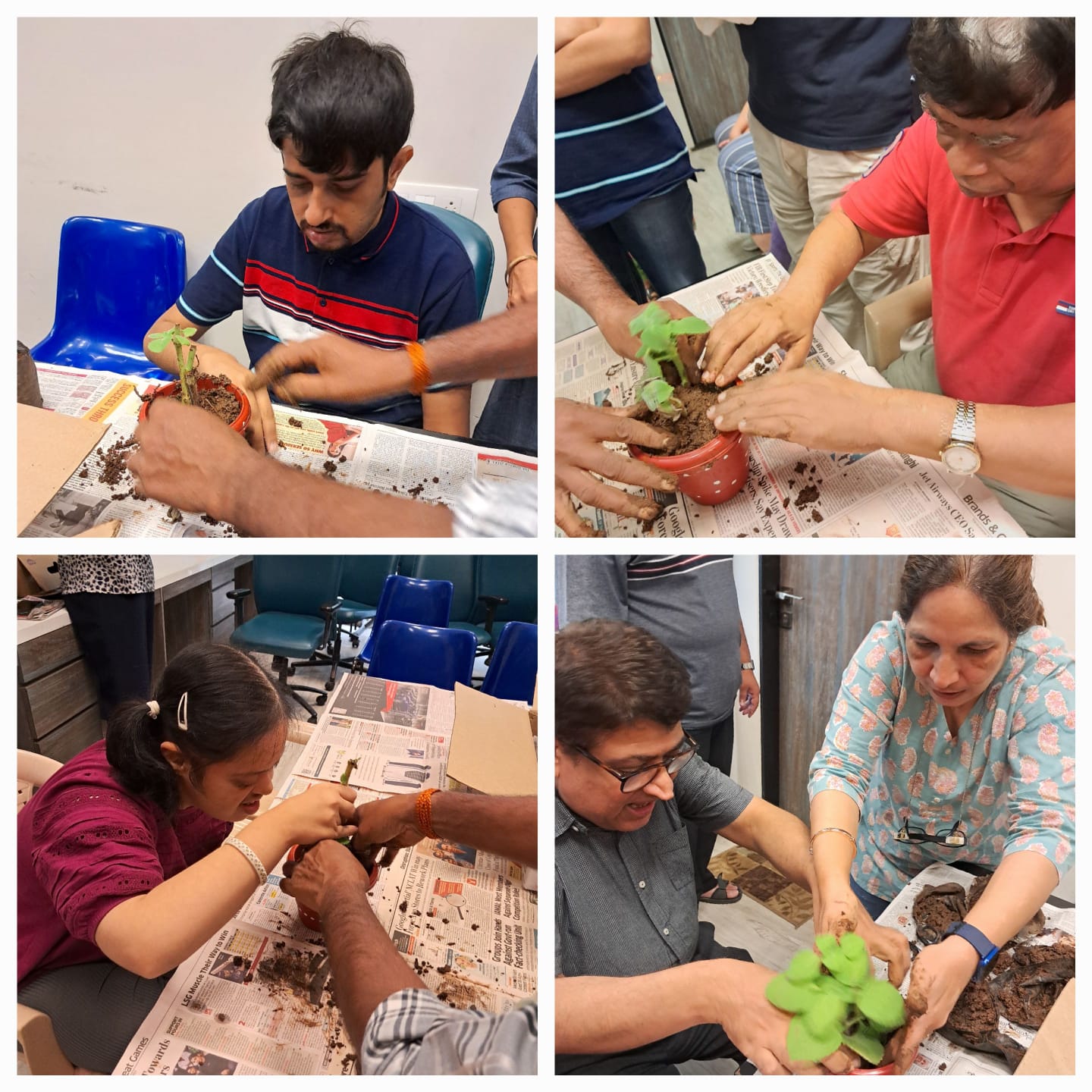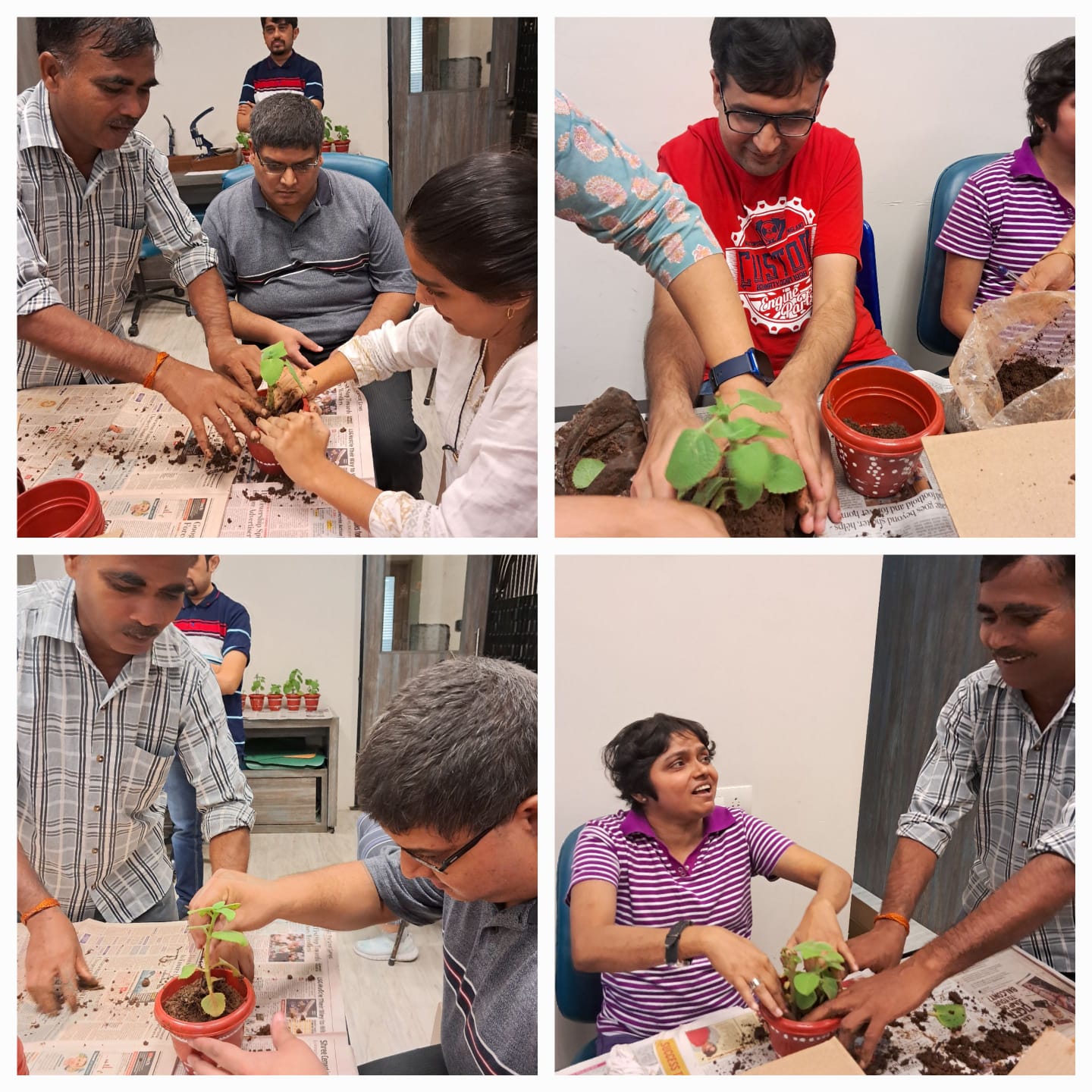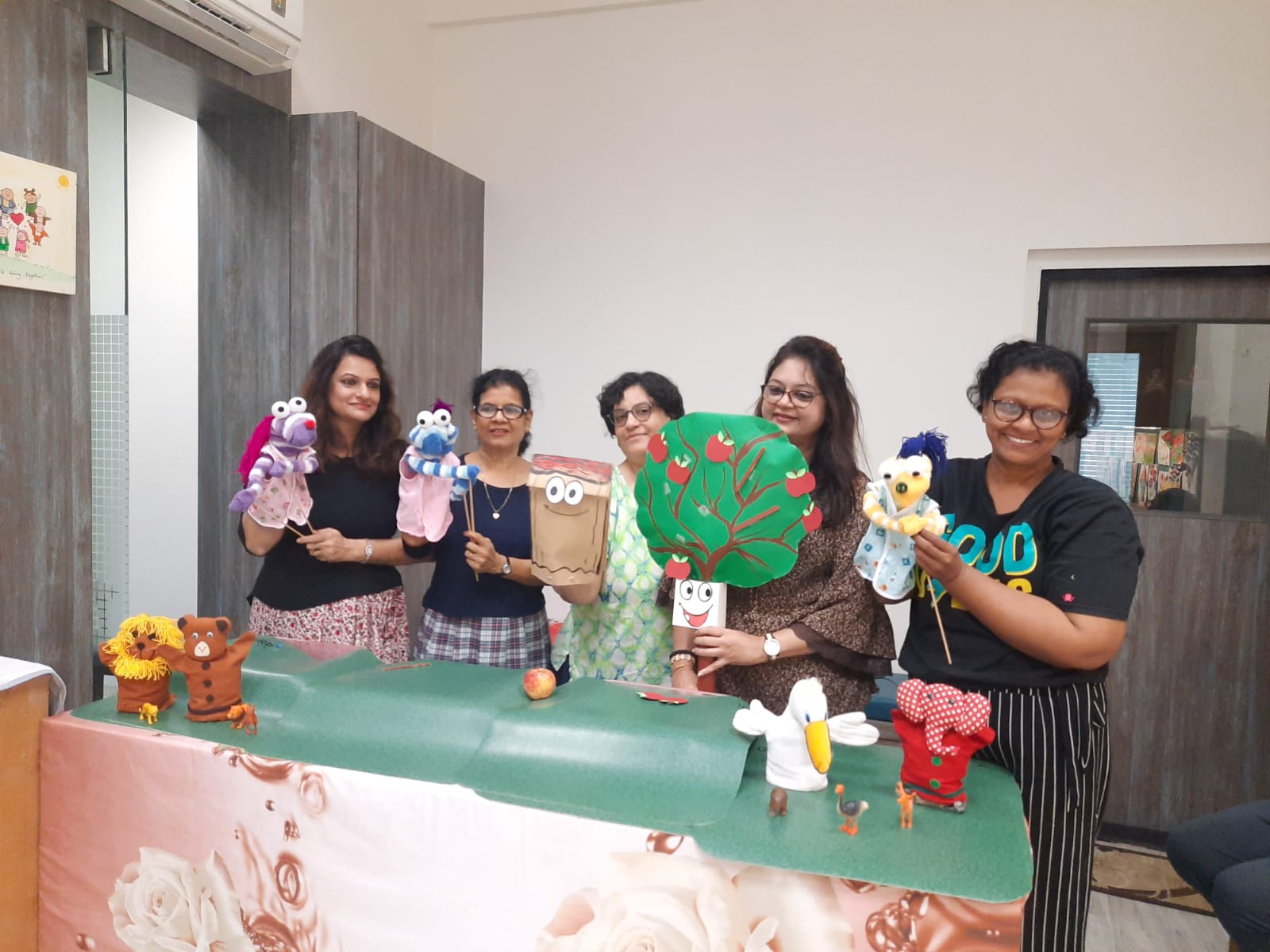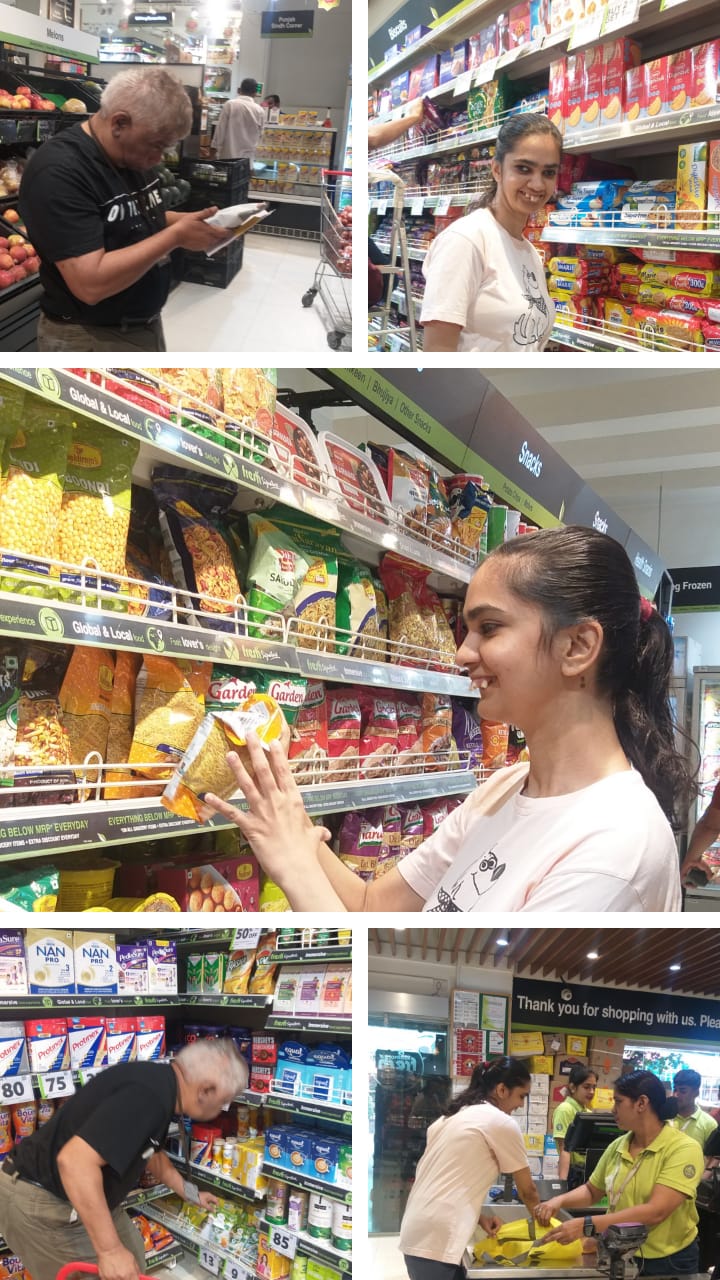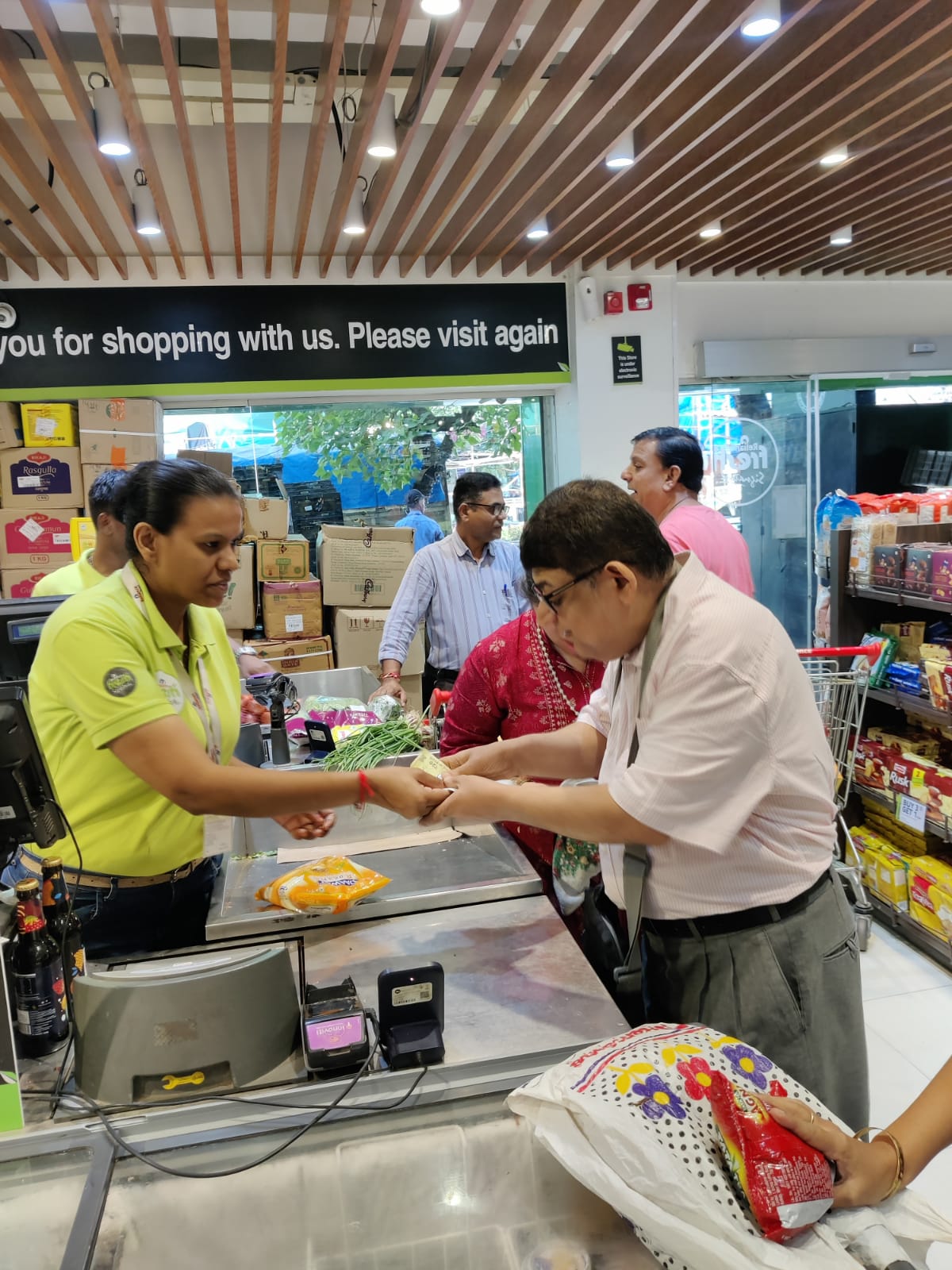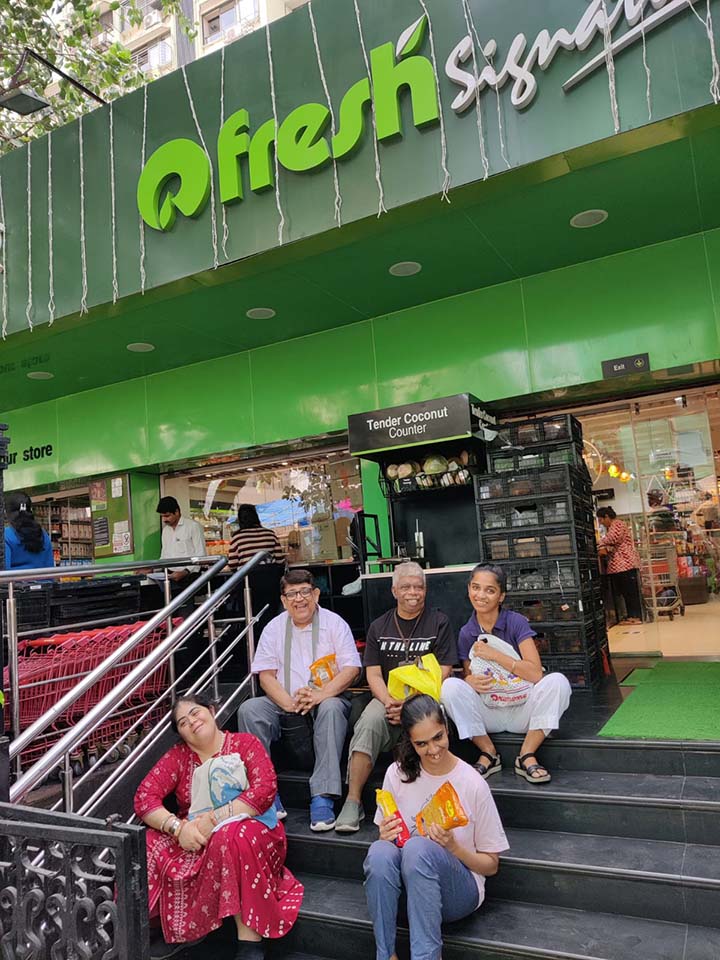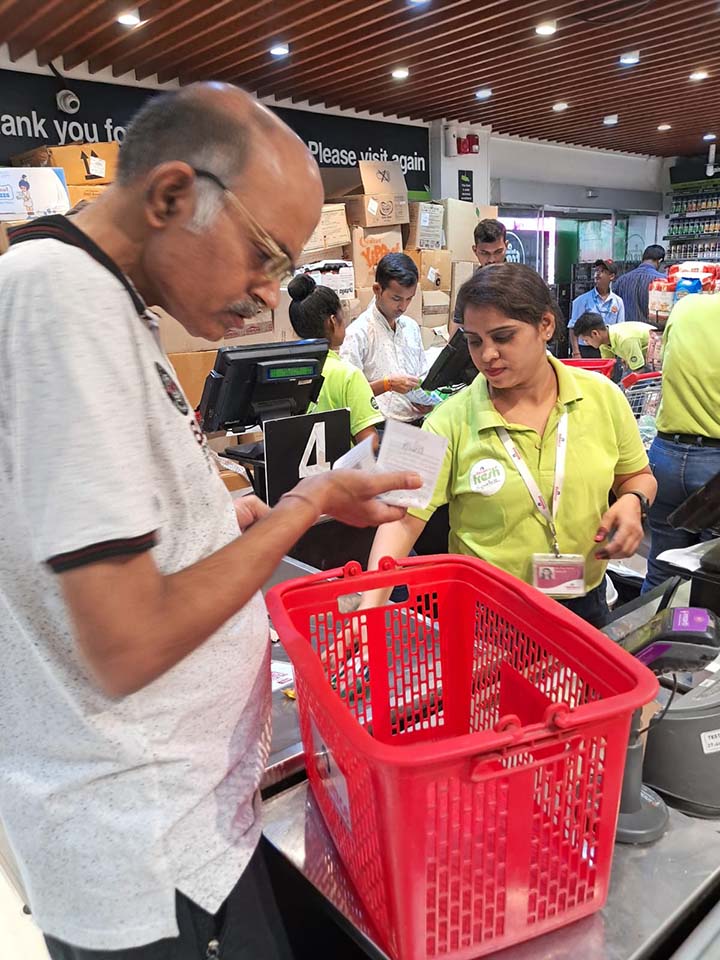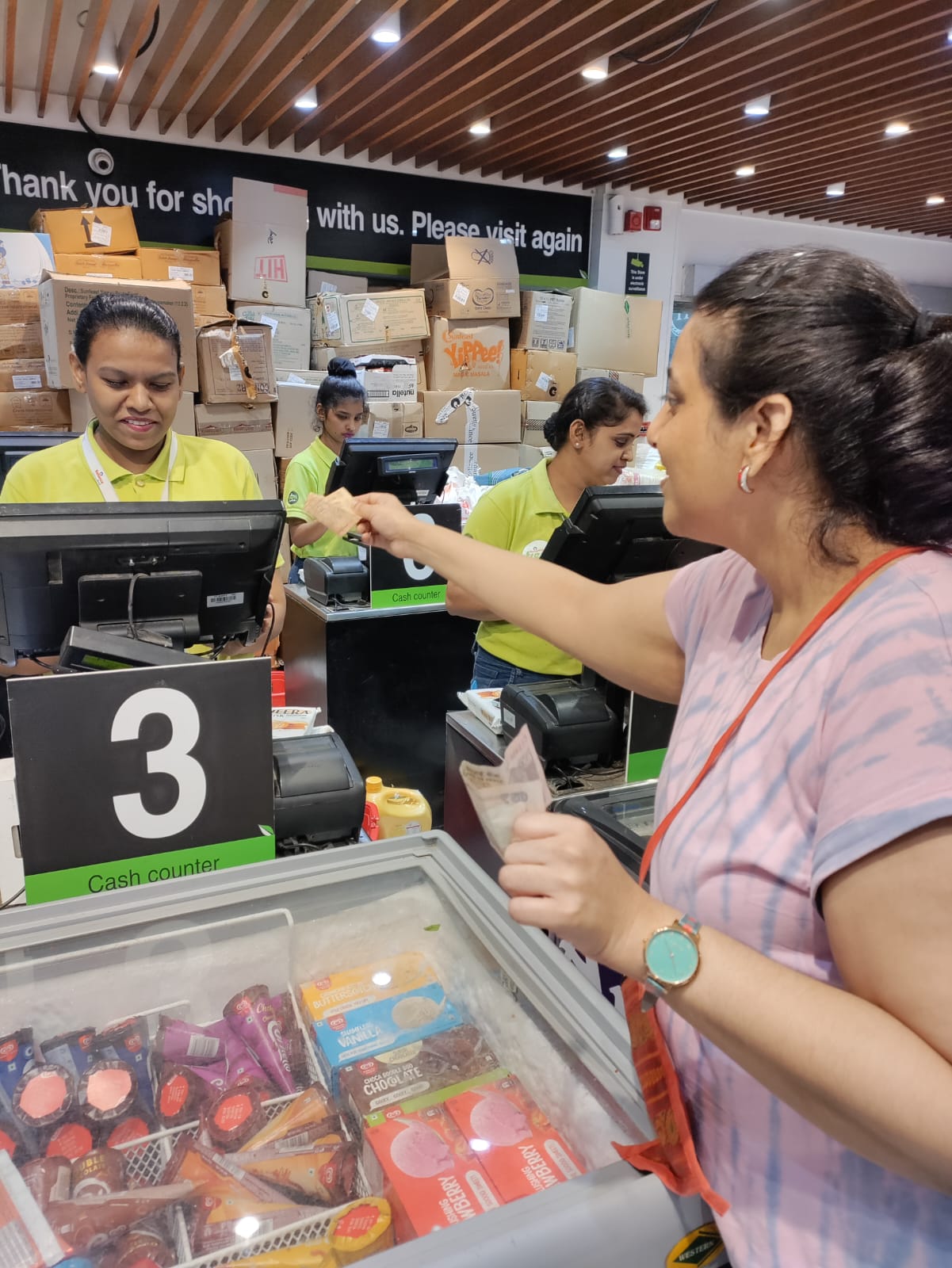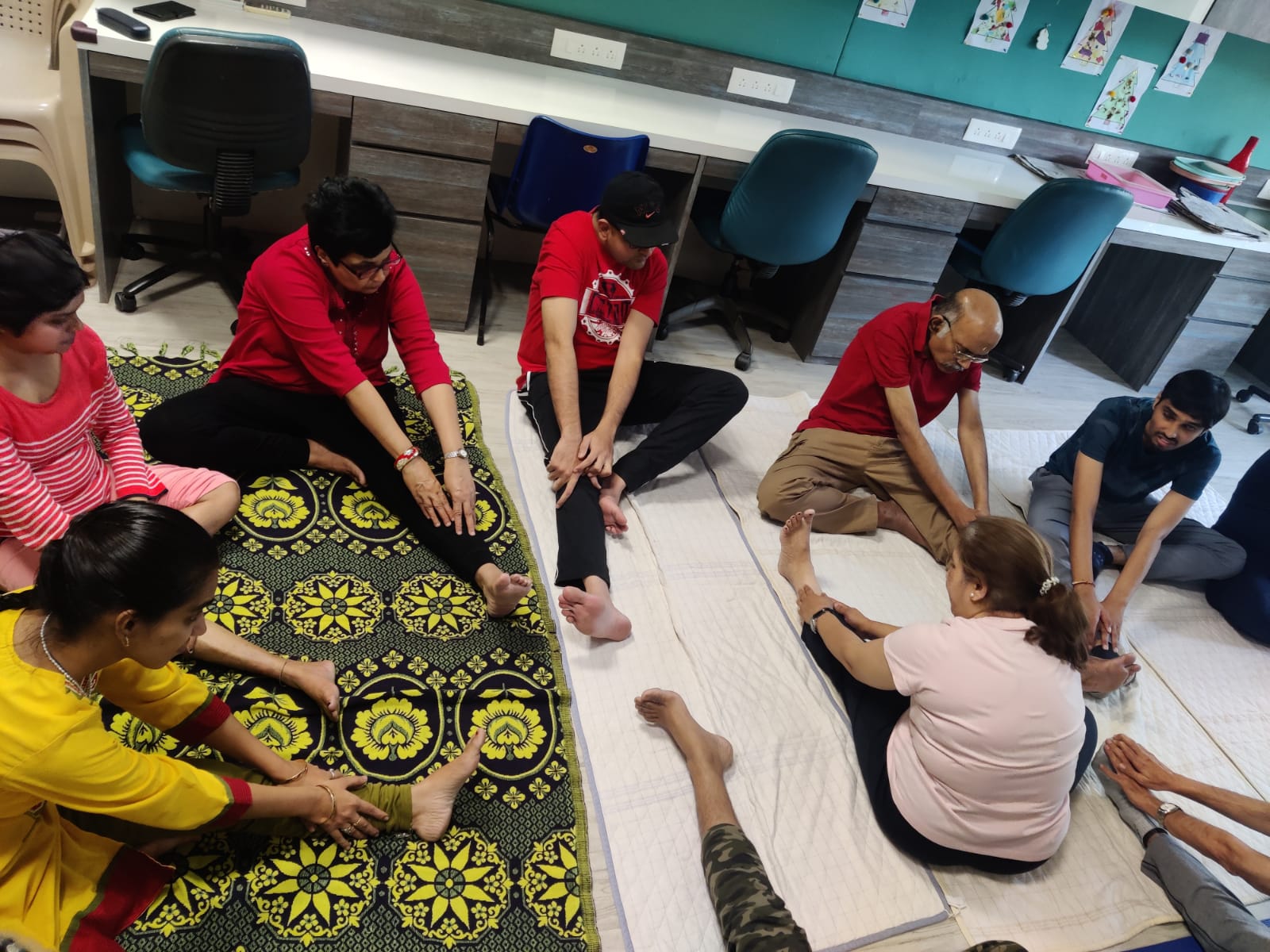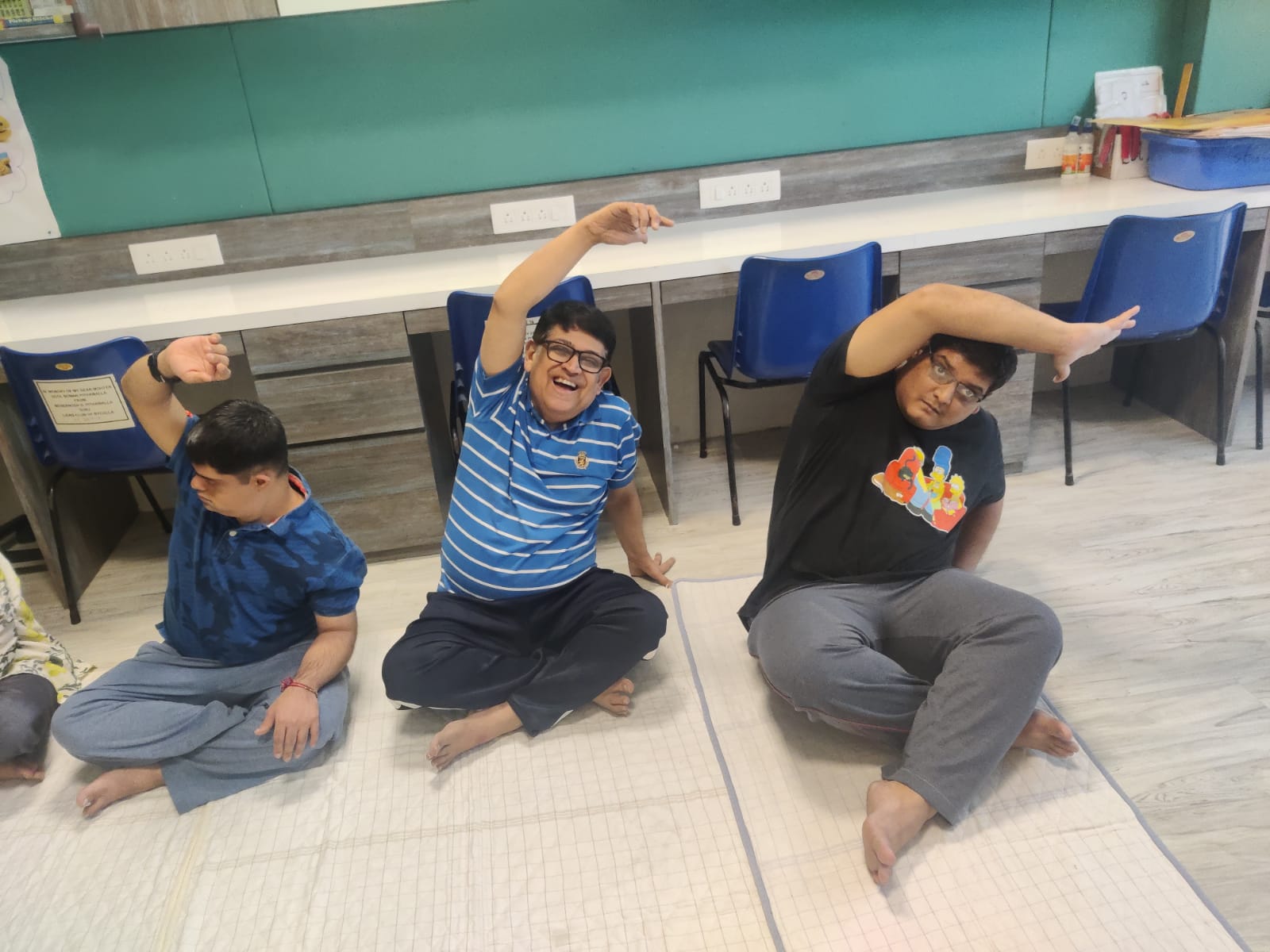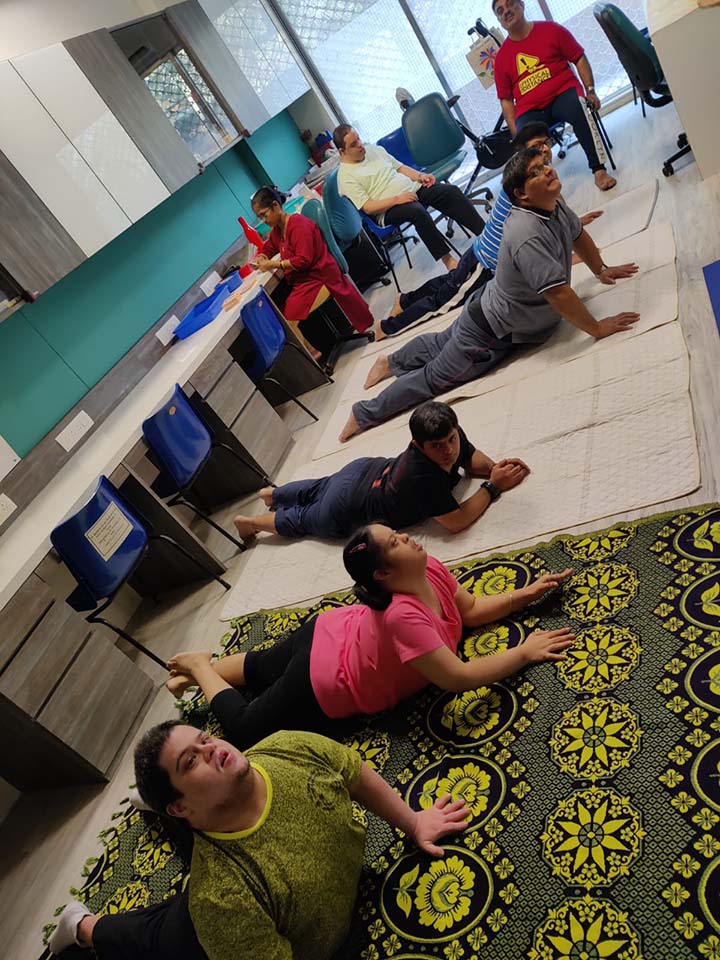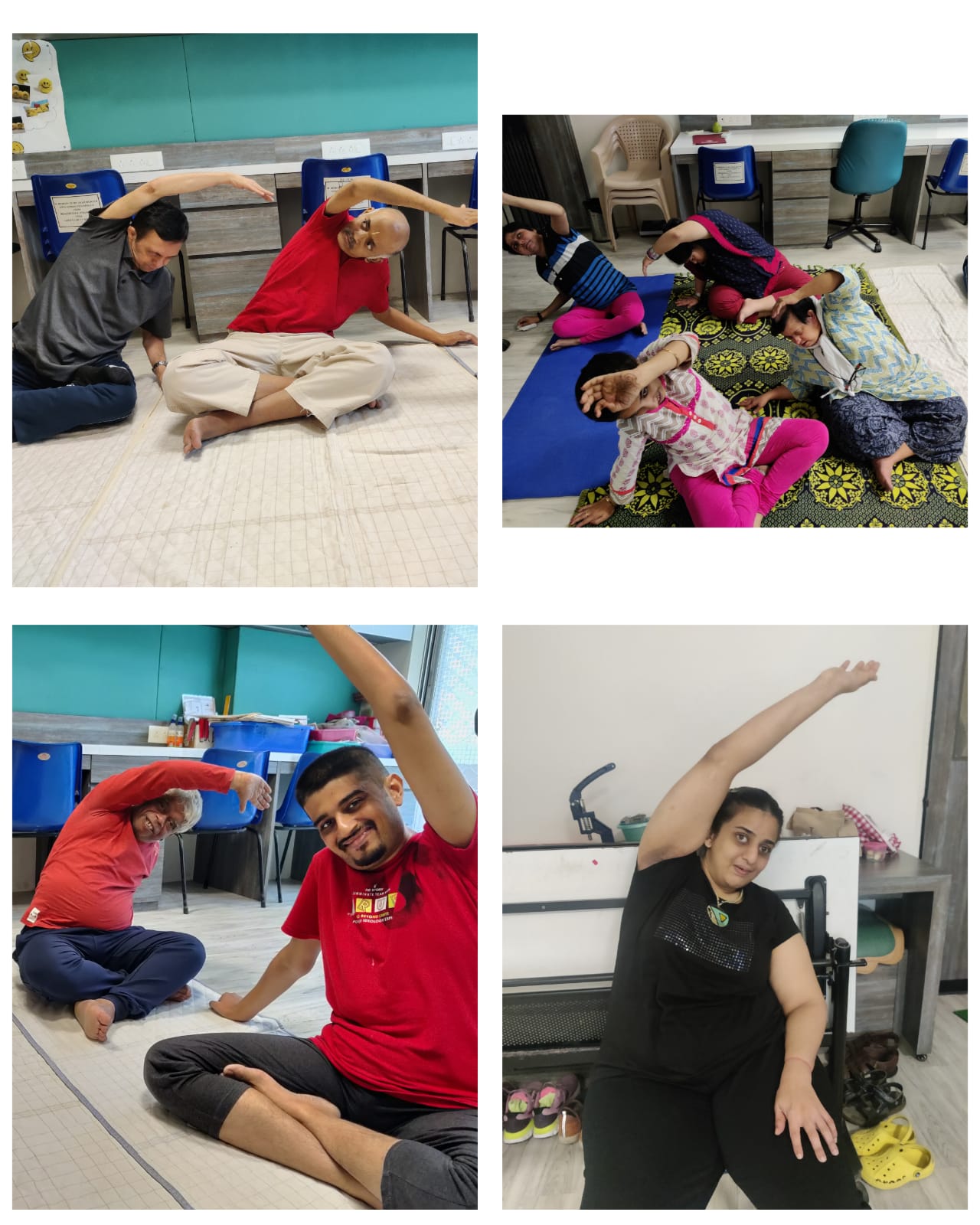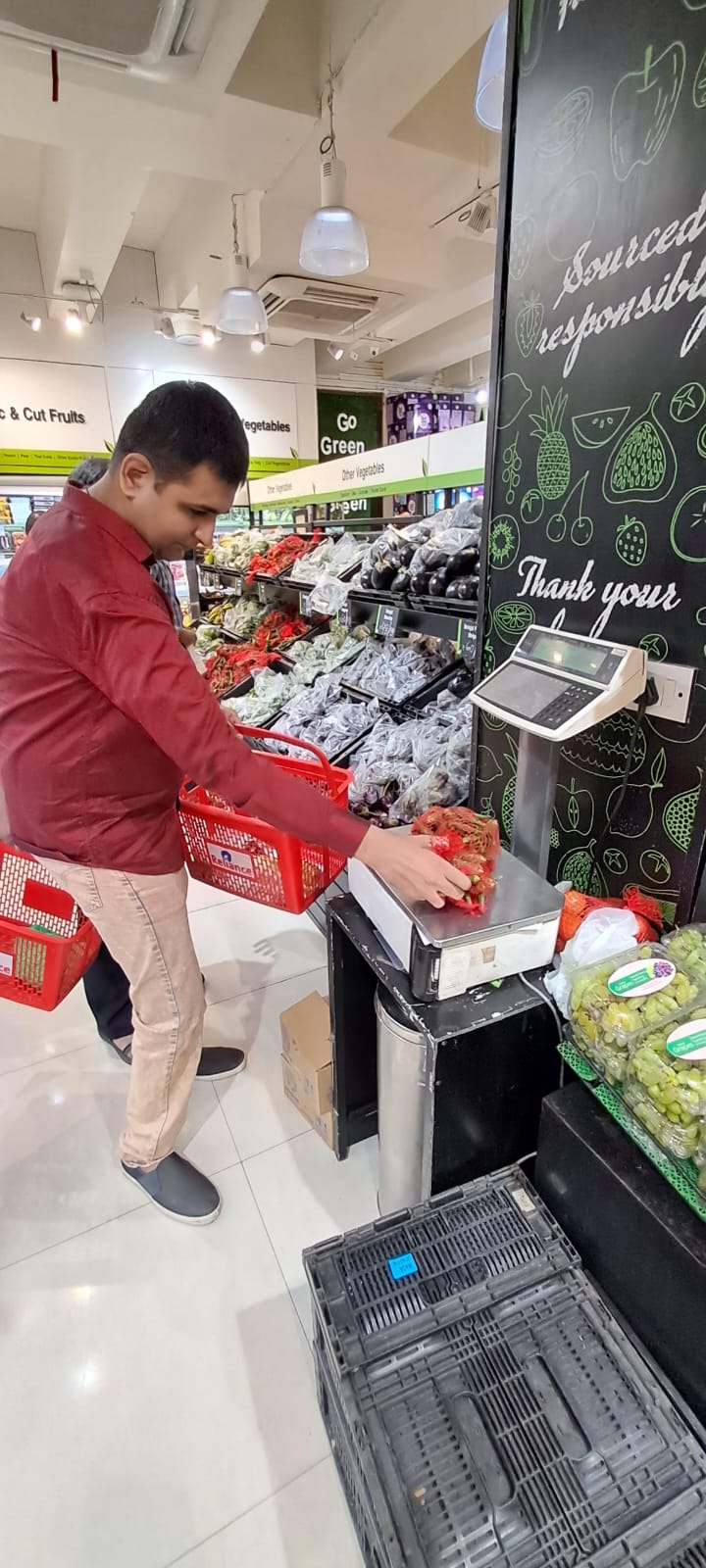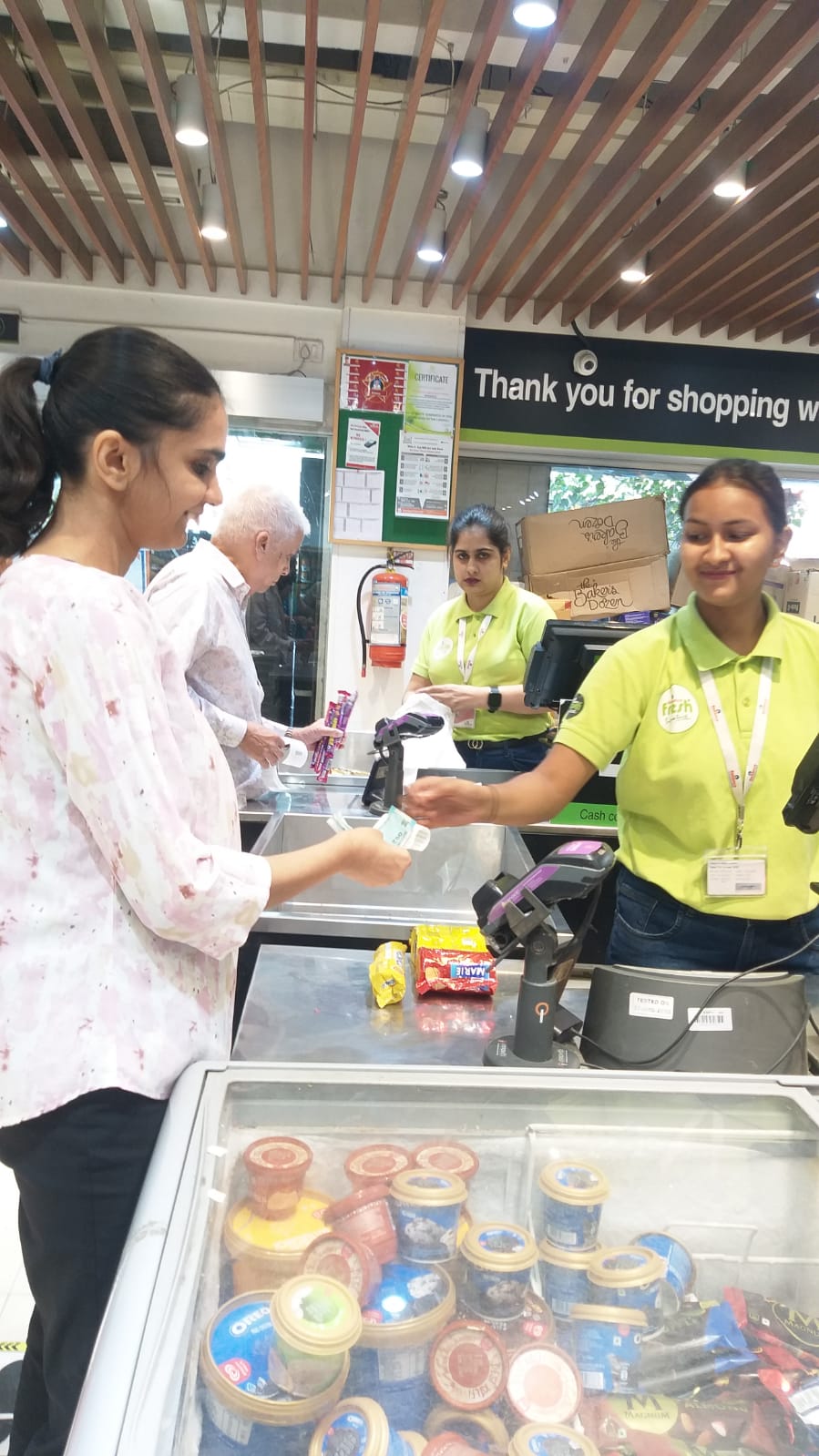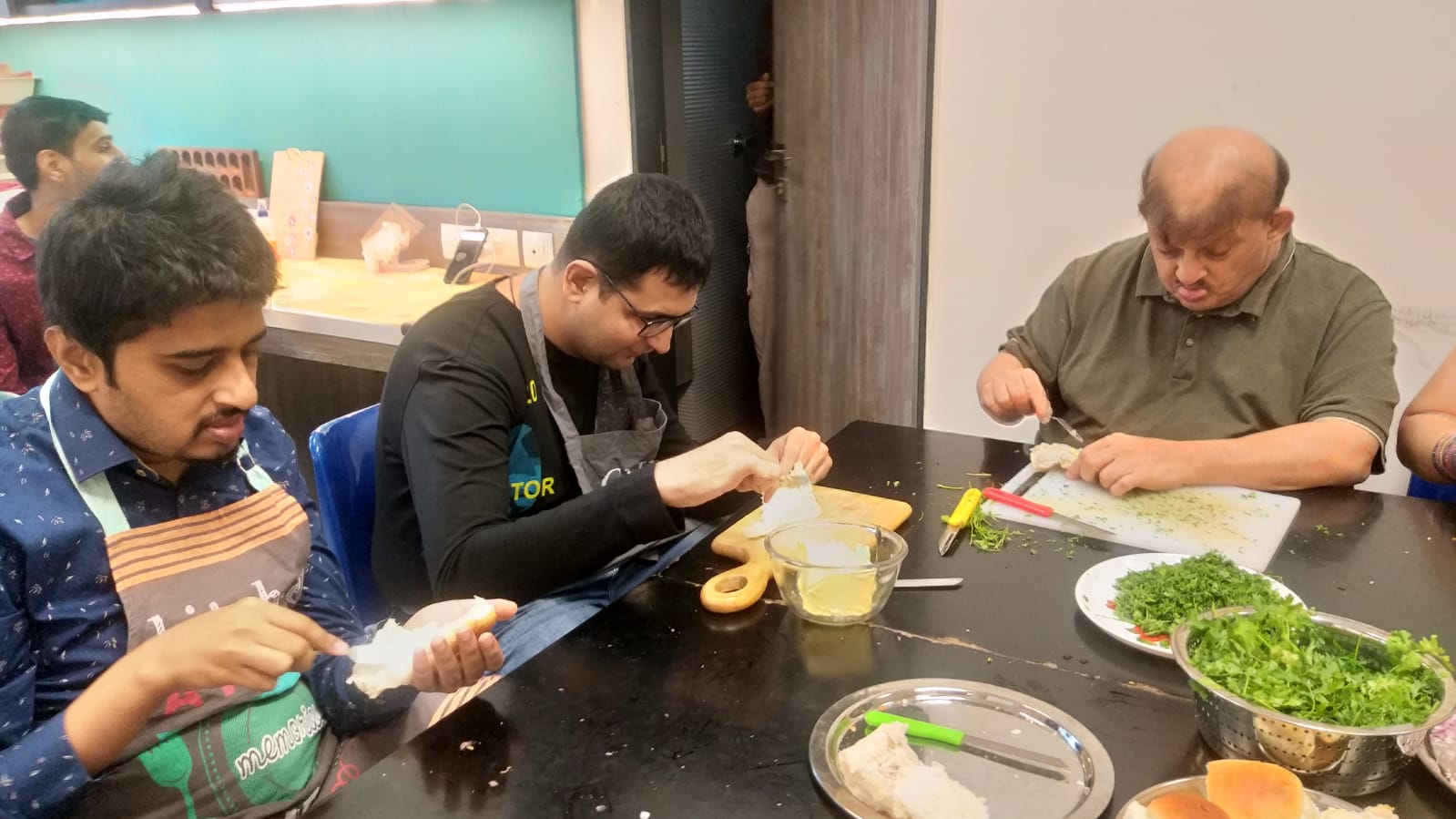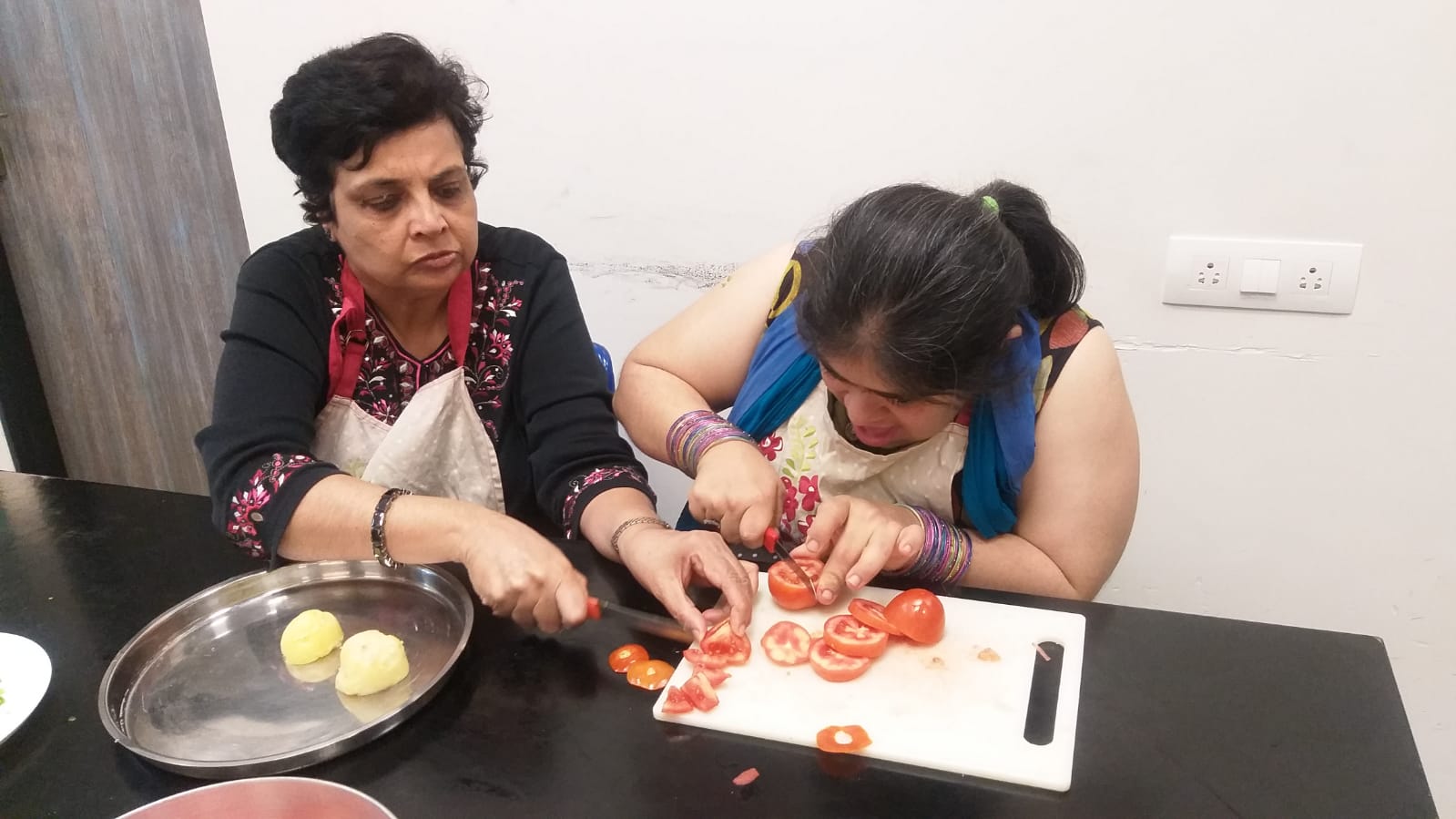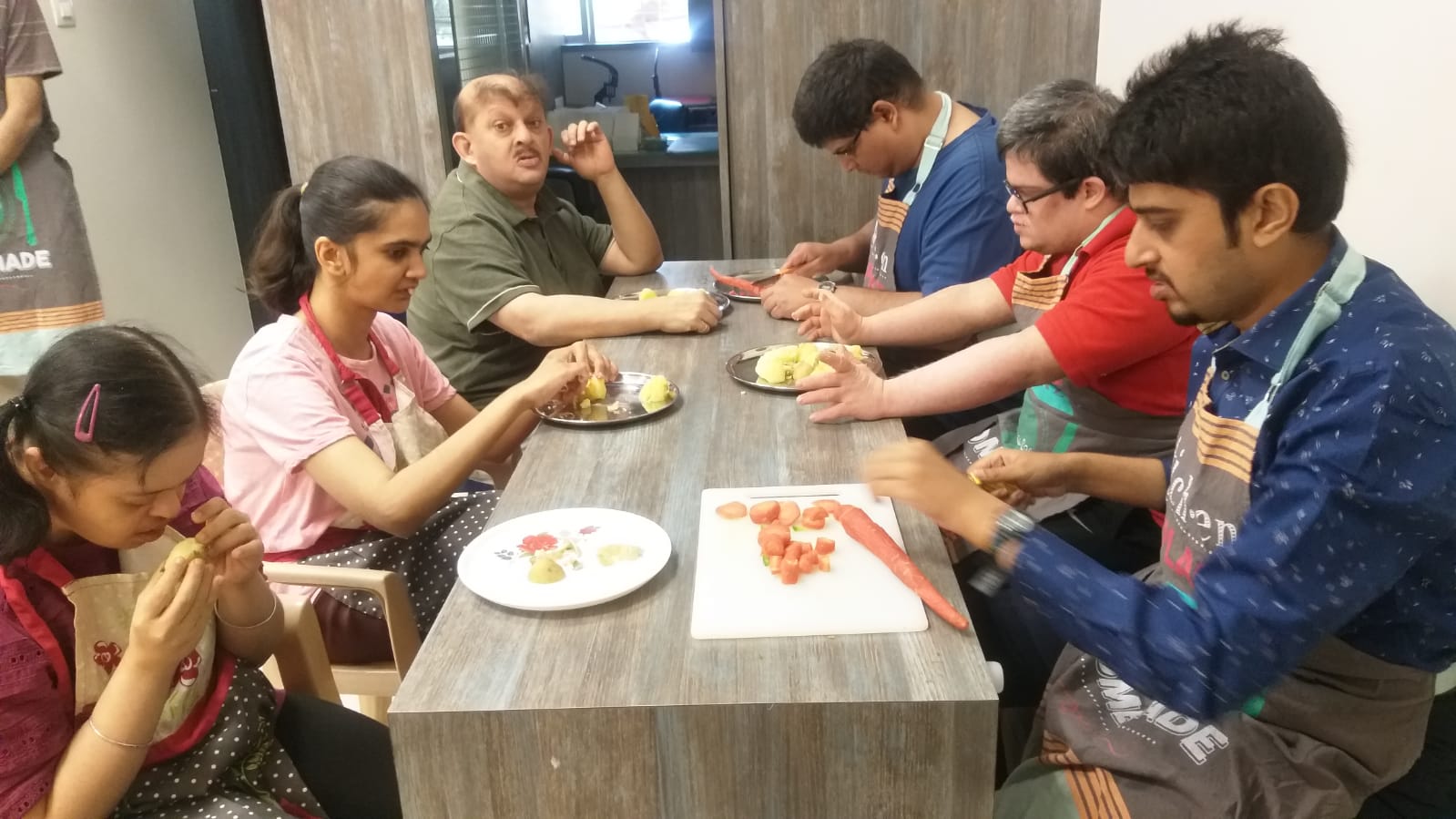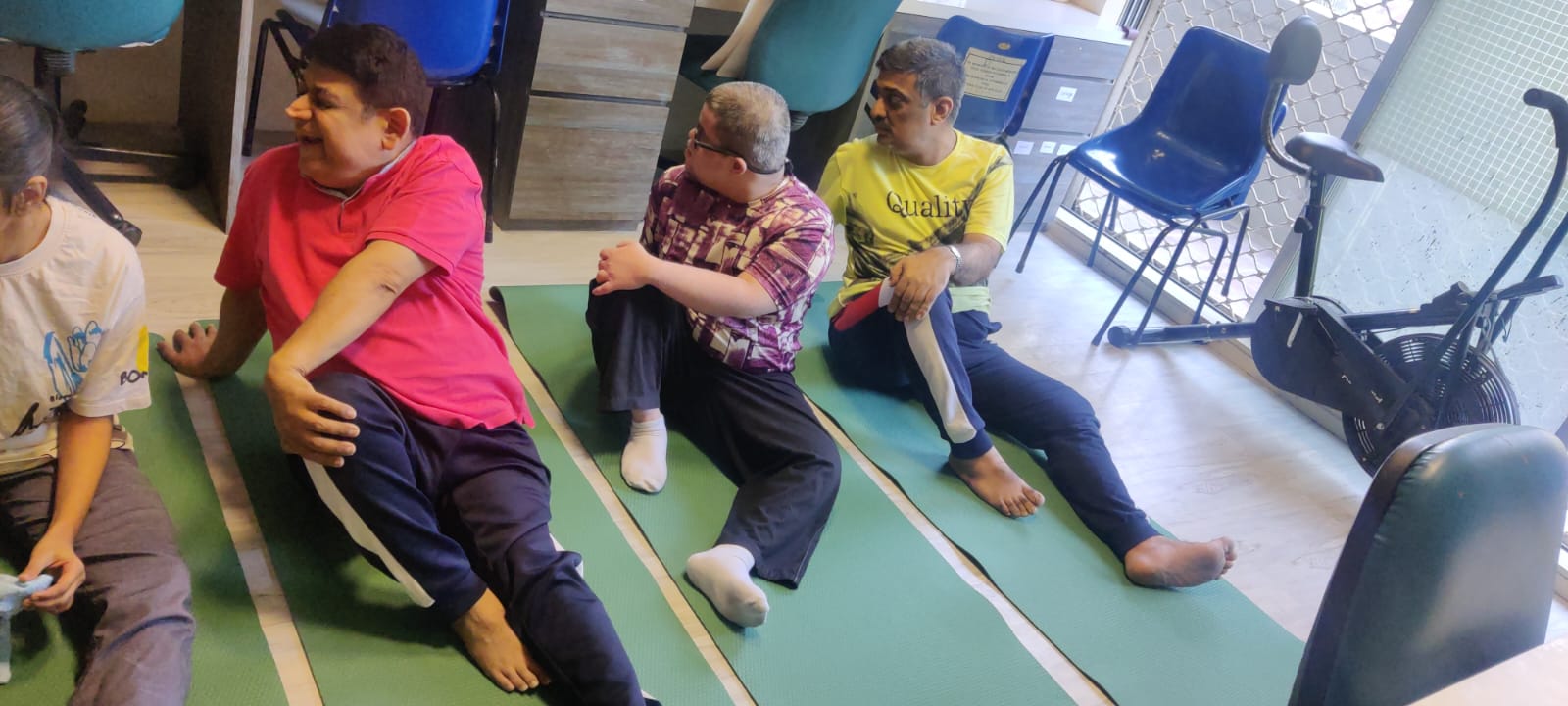A lifelong service like the Anchorage also pays attention to Physical care & behavior management, thus making the programme holistic and meaningful.
Talk time: Scheduling a one-on-one talk time once a week for all members is an excellent preventive measure for emotional disturbances at the institute, home or outside. Prerequisites are patience, active listening and asking questions leading to further understanding. It is an exercise to build trust so while the member is provided with explanations, advice is kept to the minimum.
Individual meetings with parents/caretakers/siblings: This is scheduled once a term as a means of family contact and promoting cohesiveness between what is happening at home and at the institute. It allows parents to vent their frustrations and perhaps see things from the member’s point of view. Each meeting is a time to review progress or regression, contributing factors and possible measures to be taken at home or institute. It is also a reaffirmation of what can be changed and what will have to be accepted.
Home Programme: Wherever feasible, a home programme is created for the member, which is a list of things that need to be monitored at home, arising out of discussions with the family. The staff in charge checks it daily and it is a good tool for improvement especially for Activities for daily living (ADL) getting ready on time. It is designed as per individual need.
Behavior Management policy: Non violent which means not by fear but by understanding. Members are encouraged to make choices and face consequences. A specialised counselling service is made available for members & parents. Inappropriate behaviour in the institute is managed in a consistent humane manner. The staff follows a policy in conjunction with care takers and applies equally to all members.
The underlying principles are:
- Action is to be taken only in cases where the behavior is harmful to others, for example teasing, foul language and physical assault like slapping & pinching.
- The member is either isolated or sent home.
- The cause is always ascertained so that appropriate preventive action can be taken.
- No punitive action is to be taken for rebellion against behaviour that is deemed desirable for the member but does not harm others, for example shaving, walking at walk time etc. These actions are to be encouraged by the staff in charge using creative means and applauding every time the act is performed during life skill education. Persisting rebellion has to be taken up for dialogue at talk time and finally, the choice is left to the member.
- Institute discipline, disorder, chatting, refusal to help with job work delivery, cleaning or feeding members that need help etc. is to be dealt with by explanation of need, and if persistent, having to face consequences, which are in relation to the action.
- Staff meet parents individually and collectively every once in a while, following up with home visits if an issue so demands. Support is provided for behavior management at home and for improving relationships with the extended family.
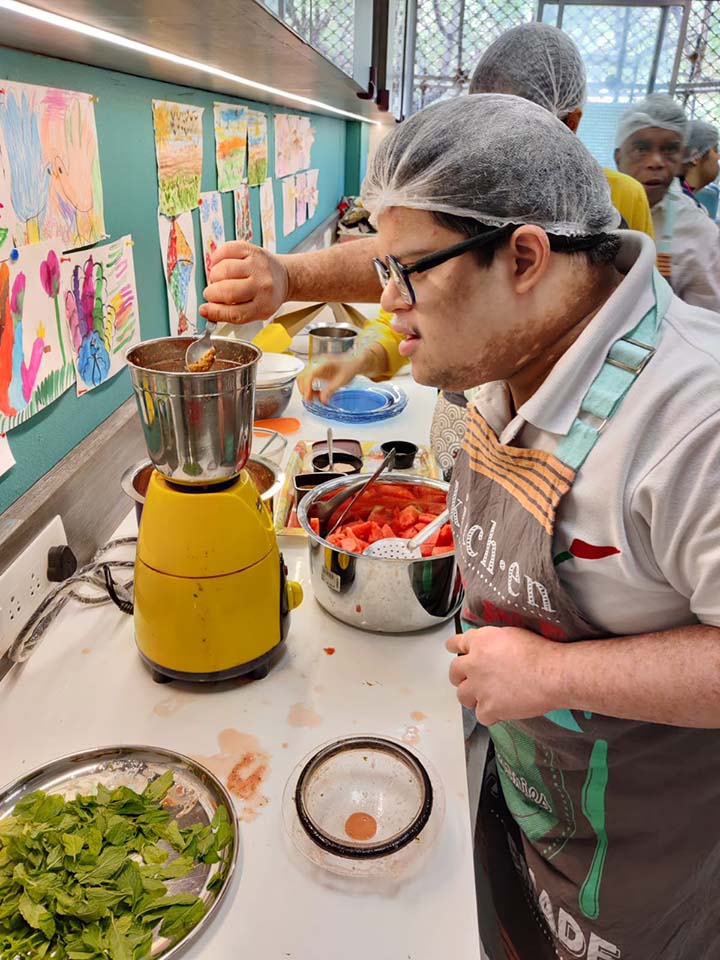


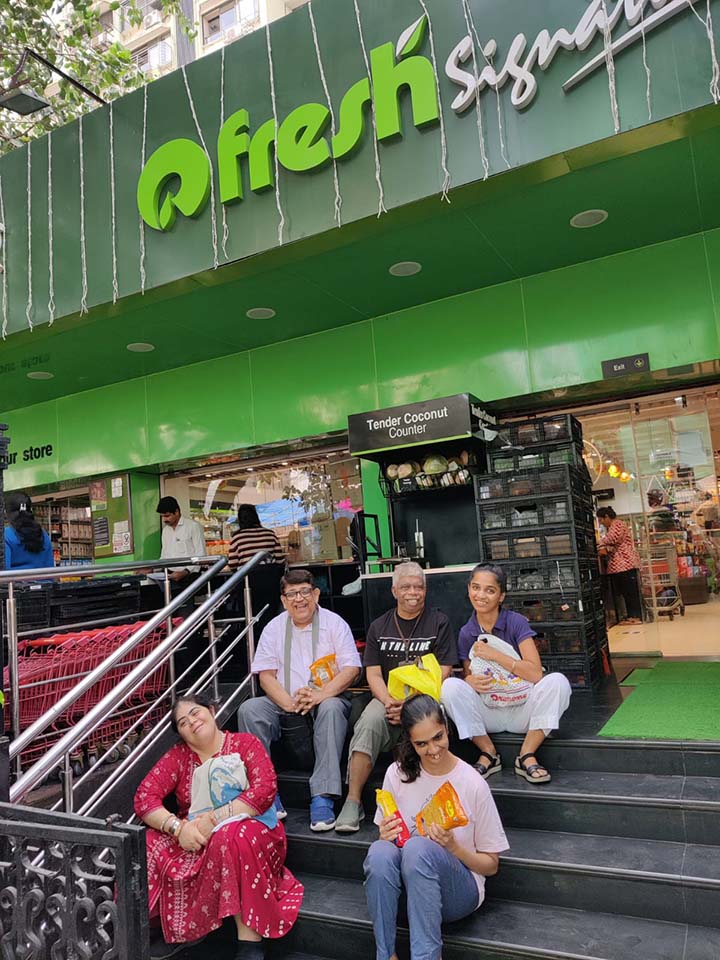
Recreation and Fun
A range of recreational and fun activities adds to the camaraderie and zest at the institute. They also provide an opportunity for exposure, interaction with family & the general public. They include dance, art and craft, which are built into the weekly schedule. The activities nurture talent and are therapeutic. Indoor and outdoor games, birthday celebrations, films, half or whole day outings and overnight picnics are the fun events.
Recreational activities that are currently part of the weekly schedule
Art: The only principle that we follow is that the instructor should believe in art as a means of self-expression and not structured learning, which can in fact add to stress. It is thus preferable to have an artist rather than a regular art teacher conducting the class. Paintings made by members have been sold at exhibitions and prints of the paintings have been used on products such as coasters, notebooks and mugs.
Dance: A good dance teacher can use dance as therapy, opening up and overcoming inhibitions. Dance is usually done to Bollywood music and is a lot of fun. After introducing dance at the institute, many of our members have joined Shyamak Davar’s classes and get to regularly perform on stage leading to confidence building.
Craft: This adds variety and creativity while providing ideas for making products for sale. Often it is linked to the theme of the season, e.g. Ganesh idols, rakhis, diyas and Christmas decorations.
- Fun:
- Birthday parties: This is one of the highlights for the members. They look forward to their birthday for months and many of them remember all the other members’ birthdays by heart. The important thing is that every birthday is celebrated, but without too much fanfare so that there is parity and it is affordable by all. Norms to be observed: The parent/caretaker has to take the initiative. At no point is it compulsory. Birthdays are only celebrated by cutting a cake.
- Games:
Indoor games for a large group: Common ones include nine pins, musical chairs, housie, antakshari, bowling, removing coins from water, stacking coins etc.
Indoor games for a small group: Cards and other small group games are scheduled once a week with an ingenious volunteer who has made special dice and created special board games. - Excursions: This provides new experiences, somethingto think about, look forward to and talk about. Overnight picnics are the time to brush up on Activities for daily living (ADL). It also gives them exposure to public places and influences perceptions.
- Movies: Once in two months in a cinema theatre, lighthearted Bollywood films are chosen.

